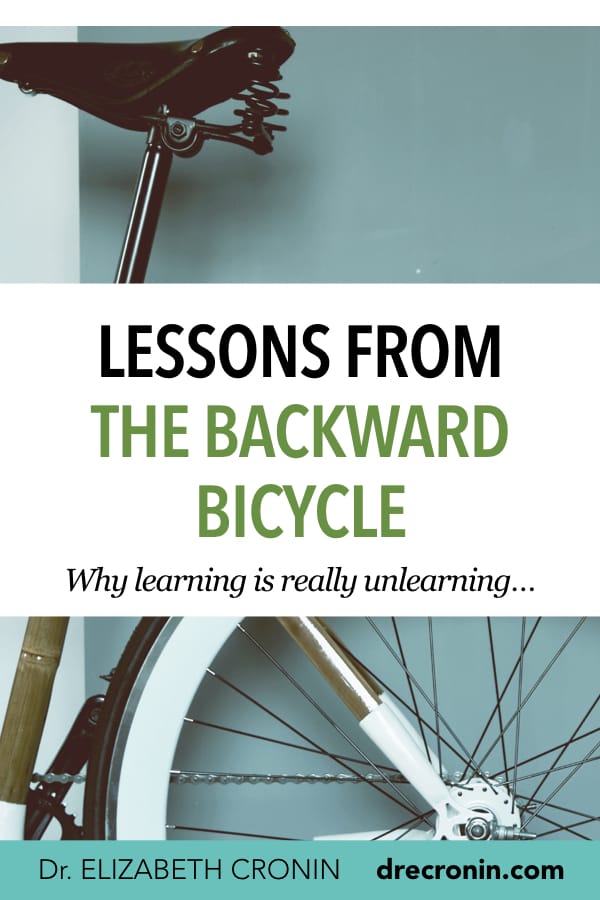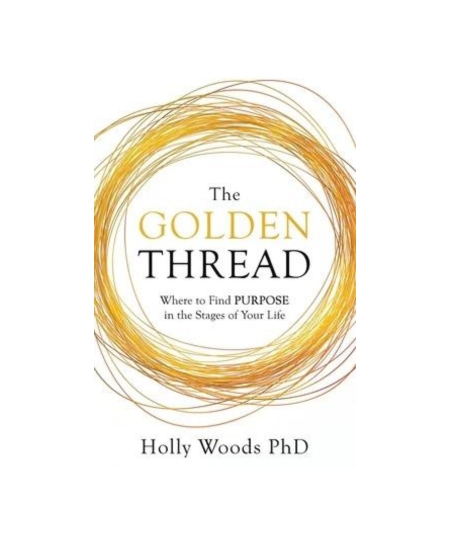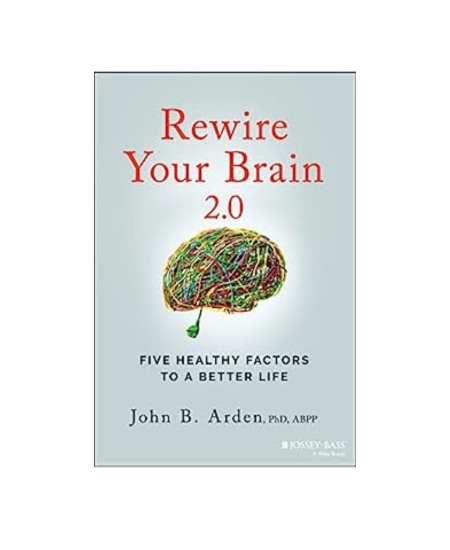Learning from the Backward Bicycle
December 19, 2018

Change is hard. Truly hard. People experience major frustration when a change begins to seem impossible. We may even give up. “You can’t teach an old dog new tricks,” right?
Changing the way we think or behave can be daunting, no question. And the challenge can become more difficult the older we get. Many clients tell me it feels impossible to think differently or approach a situation in a new way. Their thoughts and behaviors are “automatic,” outside of their control.
Acknowledging this experience is important, and I recommend that my clients watch a video that demonstrates why undoing old learning feels impossible…and why it’s not.
Like riding a bicycle
The video starts with an American engineer named Destin describing a joke cooked up by co-workers. The welders at his office have turned handlebars of a bicycle around so that instead of turning right to move the bike to the right, the rider must turn the handlebars to the left. Because Destin describes himself as someone who “happens to help people look at the world differently,” he is eager to be part of an experiment.
Riding a bicycle, like many tasks that we practice over and over, is hard to forget and easy to do without thinking. When certain behaviors and thoughts are repeated over and over, the brain develops a shortcut, making the tasks feel effortless. Consider tying our shoes. Most of us can do this with our eyes closed. During our younger years, hours spent mastering a skill engraves knowledge in our minds. We even encourage each other to take up former hobbies with the adage, “It’s like riding a bike! You never forget.”
Change can require unlearning and learning
Changing one part of a bicycle, or learning a new approach to anything, can lead us to struggle again. Once on the “backward” bicycle, Destin quickly discovers that the small change creates enormous challenge. He is unable to stay on the bike for even a minute.
Researchers in the field of psychology have documented the specific challenges involved with learning new material using studies that measure the level of difficulty involved with various tasks. This data expanded our understanding of human behavior. Ivan Pavlov helped launch a new area of exploration now known as Learning Theory which provides the following assertion: . “The key insight to take home from learning theory is that most behavior is learned behavior, for animals as well as human beings. If behavior can be learned, it can also be unlearned …”.*
Most people in therapy are engaged in the process of learning.
Learning how to be more patient, less judgmental. Learning how to overcome difficulties and experience more success. Learning to be more optimistic and less negative. Learning how to reduce stress and find peace. Learning new ways of understanding themselves and others. You get the point.
But learning is hard! And if you have learned to behave, think and feel a certain way in response to a certain person, place or thing AND practiced that behavior, thinking and feeling for a long time, it can be very, very hard. In order to think in a new way, we need to “unlearn” our more automatic beliefs. For example, if you or I had one or more bad experiences with dogs during childhood we may have “learned” that it is dangerous to encounter a dog. In the same way that Dustin had to repeatedly get on the bike and tell his brain that instead of wanting to turn to the left, it should turn to the right, we need to tell our brain to do something different if we want to think and feel differently about dogs. Like Destin we will need to face frustration and failure AND keep trying, day after day.
Where’s the shortcut or magic switch?
Clients often look for a secret formula or shortcut to success. Or they wish for a way to flip a switch to turn on or off a certain behavior or belief. When caught in a struggle, we hope for some magic or miracle. In lieu of imagined magic, we can count on faith, grit and time to result in visible magic. These characteristics allow Destin to triumph over his task.
Faith — Destin doesn’t give up in frustration even when it feels impossible
Grit – Destin commits to getting on that bike, and falling off, even when it hurts
Time – Destin returns to the task daily for eight months even when progress is poor
Practice makes change possible
Destin practices, over and over for eight months! That’s a lot of miles and minutes devoted to unlearning old, automatic behavior and learning a new way of thinking and biking. His practice pays off and he accomplishes the “impossible”! I love how this video validates how hard it is for us to do something differently or try a new approach to a familiar activity, but then demonstrates that even “impossible” change is possible. Take time today to witness Destin’s proof that old dogs and humans can learn new tricks and skills!
*www.mentalhelp.net provides an introduction to learning theory
Resources:
Learning Theory
Ivan Pavlov
You may also love
Mindfulness can be integrated into your life each and every day — and in each and every moment. Learn 9 specific practices that you can try at any time to support the experience of feeling present.
9 Mindfulness Practices You Can Try Today
sign up
© Elizabeth Cronin 2023 • Legal • Website by uno dos trae • Photography by Laura lee creative





